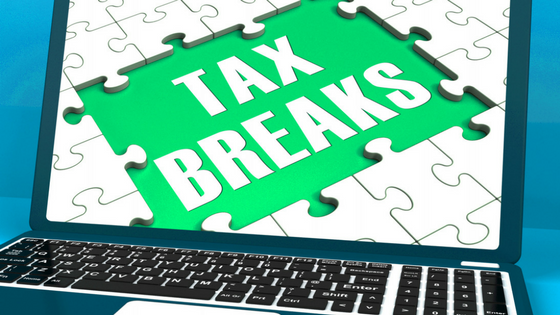Do Home Ownership Tax Breaks Still Apply to Manufactured Homes?
January 9, 2017

In order to qualify for certain homeownership tax breaks, a taxpayer must own a “qualified home.” As defined by the IRS Publication 936, a “qualified home” is any piece of property that has “sleeping, cooking and toilet facilities.” Since manufactured homes meet this requirement, a taxpayer who owns such a home may be eligible for tax deductions, with some limitations.
Assessing Deduction Limitations
The deduction you may be able to claim on your tax return depends on whether or not:
- the manufactured home itself serves as collateral for the loan you’ve taken out to purchase the property;
- the home is used as a primary or secondary residence; you may also be able to deduct the interest on your manufactured home loan if the home is used for other deductible purposes (e.g. business, investment, etc.);
- you’re legally liable for the loan; you cannot deduct interest if you’re a co-signer and make payments on someone else’s loan.
Manufactured Homes: Tax Deductions You Might Qualify For
Interest
The interest you can deduct on your manufactured home loan is the same as for conventional mortgages. You may be able to claim the interest paid over the previous year as a deduction if your debt doesn’t exceed $1,000,000 (when filing jointly with your spouse) or $500,000 (when filing separately), and an additional $100,000 of home equity debt.
But what if you choose to finance the purchase of a manufactured home with a chattel loan instead of a conventional mortgage? Based on the IRS Tax Topic 505, the interest paid on any loan taken out to purchase or renovate a manufactured home can be written off as long as the home is used to secure the loan.
To deduct manufactured home loan interest, you need to file Form 1040 and itemize deductions on Schedule A.
Points
If you’ve just purchased a manufactured home and decided to get buy-down points, the cost of the points is also deductible. In fact, buying points is one of the best decisions a person can make when purchasing a manufactured home. Not only the homeowner is able to deduct the cost of the points along with the amount paid in interest; he or she also benefits from a lower interest rate over the life of the loan.
Property Taxes
The IRS also allows you to deduct annual real estate taxes. Whether your home sits on your own land or on a leased lot, you can claim a deduction for the property taxes paid to the taxing authority. As well, the property taxes paid at settlement are fully deductible if you’ve purchased your manufactured home in the year you’re filing for.
Energy Efficiency Tax Credits
Previously scheduled to end in December, 2016, the Residential Energy Efficiency Property Credit of 30% has been extended to the end of 2019. If you intend to add certain energy-efficiency features like solar panels, fuel cells, geothermal heat pumps or wind turbines to your manufactured home, you can file for this credit using the IRS Form 5695.
Sales Taxes
To qualify for sales tax deductions, you need to have lived in your home for a minimum of two years. When you sell, you can keep profits up to $250,000 ($500,000 for married couples) without paying capital gains taxes.
As homeownership tax breaks apply to manufactured homes as to any other type of residence, the deductions you may be eligible for can substantially add to your financial health. If you’re in the market for a manufactured home, contact Triad Financial Services to have a financial expert help you find the right financing or refinancing options for you.
